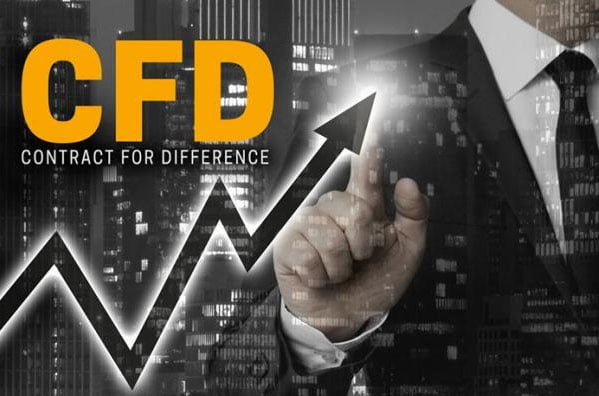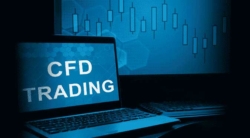What is CFD — The Cheapest Way to Invest

CFD or Contract for Difference is an investment tool, which makes the investing market accessible. It’s different from buying stock shares and yet it can be very profitable. Let’s see how it works.
CFD — What Is It All About?
CFD trading online has been getting more and more attention from investors lately. Especially those who only begin their career. And there’s a number of reasons for that.
Here are the top three reasons:
Career opportunity. The job market has been as wobbly as jelly since the pandemic has begun. Investing offers a new career option since you can do it from home.
Volatility. CFD is all about market volatility. And these days when airlines lose profits and pharmaceutical companies or Netflix make even more money, it is a good moment to earn extra cash from trading.
Accessibility. You can begin trading with as little as $50-100, while more traditional stock market operations require $1000 of capital at least.
But wait, what is CFD exactly? And how can you make money from it? CFD means Contract for Difference. And here’s how it works.
You basically make a bet with a broker. For example, you’re dead sure that the orange juice will cost $10 more per gallon by the end of June. So, you take your monies, go to the broker and make a contract.
As the contract states, if your prediction turns out to be correct — the broker will pay you the dividends. It’s called net difference, and it comprises the difference between the current and the future cost of the asset.
So, the more you invest, the more lucrative your financial harvest will be. But you can also bet on the price falling. For example, if you believe that an ounce of gold will cost 20% two months from now — you can also make a bet on it.
And here’s a proper definition of CFD: Contract for Difference is an agreement between you and a broker to exchange the difference in price of a certain asset. The exchange will happen by the time the contract closes.
Trade Anything
One of the best things about CFDs is that you don’t really have to own any of the assets you invest in — wheat, platinum, cocoa. You simply make a bet on whether their prices will skyrocket or collapse by a certain date in the future.
Here’s what it means. Since you don’t directly possess any of these goods, you don’t need to pay for logistics and storage. For example, if you bought physical gold bars, you would also have to pay for a bank vault where they’d be safely kept.
And there’s a whole bunch of available assets: gold, silver, crude oil, orange juice, cocoa beans, natural gas and indices. As well as stock shares of Apple, Samsung, Facebook, Johnson & Johnson, Disney, Netflix, and other giants.
Costs of CFD
CFDs cost cheaper than traditional investing tools. Let’s analyze what comprises their cost exactly:
Spread. Spread is basically a difference between buy/sell prices. The smaller the spread the better — you can start making profits sooner if the price shifts the way you predicted.
Holding cost. This cost is charged at the end of a trading day by your broker if you decide to hold the position for a longer time.
Commission. Regularly, there’s a $0 commission when you trade CFDs related to Forex or commodities. But when it comes to stock shares, there can be a commission — check your broker’s policy first.
By the way, if you decide to hold the short position, you won’t have to pay the holding cost according to the rules. But it also increases the risks that you face.
Why Is CFD Worth It?
And here are some advantages of CFD that you won’t find anywhere else:
High leverage.
CFD offers possibly the highest leverage on the market: 3% or 30:1. And in some cases, it can go to 50% or 2:1. As you can see, margin demands for CFD are pretty low. But what does it mean? You need a smaller investing capital, while your potential profits will be higher.
Easy shorting.
Unlike regular stock, you can short CFDs at any time you want. Plus, you won’t have to borrow the instrument — like extra cash — because you don’t possess the asset that you trade. (It’s also called the underlying asset).
Global Market
While CFDs aren’t allowed in the US, they are allowed in many other countries including Australia, Canada, almost all European Countries, and China. So, you can trade them in many markets of the world, 24 hours.
Free tools
Such tools as Stop or Limit are available for CFD trading. And the best part is that they are free of charge. Brokers primarily earn revenue when you pay the spread.
Virtually no limits
Traditional stock markets are very orthodox. They set limits for everything: capital amount, number of trades, and so on. CFDs have no such limits. While typically they begin trading with $1000, you can have a starting capital even smaller than that.
Risk of CFD Trading
But every medal has two sides. And with all its benefits, CFD also brings some tangible risks. Let’s see what you should be aware of.
Unpredictability
CFDs are quite unpredictable. The prices shift at a crazy speed sometimes. And you need to monitor these changes closely.
In some cases, you will have to compensate for the value reduction of the asset. If you don’t do that, the broker will close the position, and you will earn $0 even if your prediction turns out to be accurate later.
Failed obligations
The provider, which issues CFDs can fail to pay your dividends due to a number of reasons. It’s vital to do business with a reputable, trustworthy broker.
Liquidity
The whole market is unpredictable. There simply may be not enough CFD investors for the same asset: crude oil, gold, pork, etc. If that happens, your CFD will become illiquid, which means you may have to pay more margin fees.
Additionally, your broker can close the contract at the best price they can. And this can result in much lower profits that you’d expect or even losses.
The Money Tree of CFD
Even with all the risks considered, CFD is still a promising opportunity. As long as you keep monitoring the situation and choose the right broker, you have every chance to earn profits, while entering the market at a smaller price.


